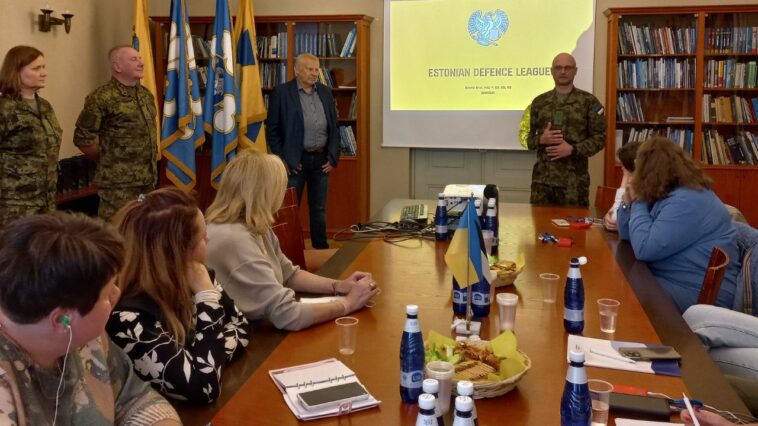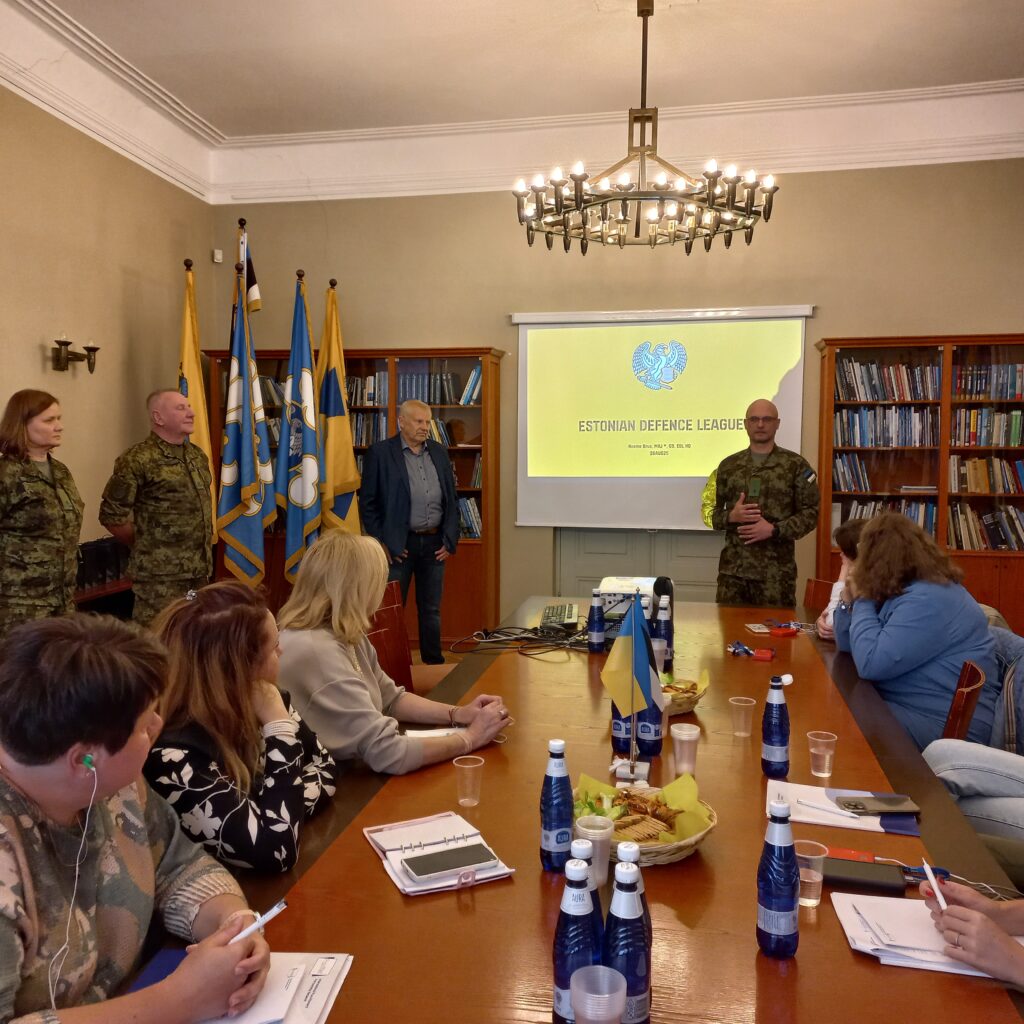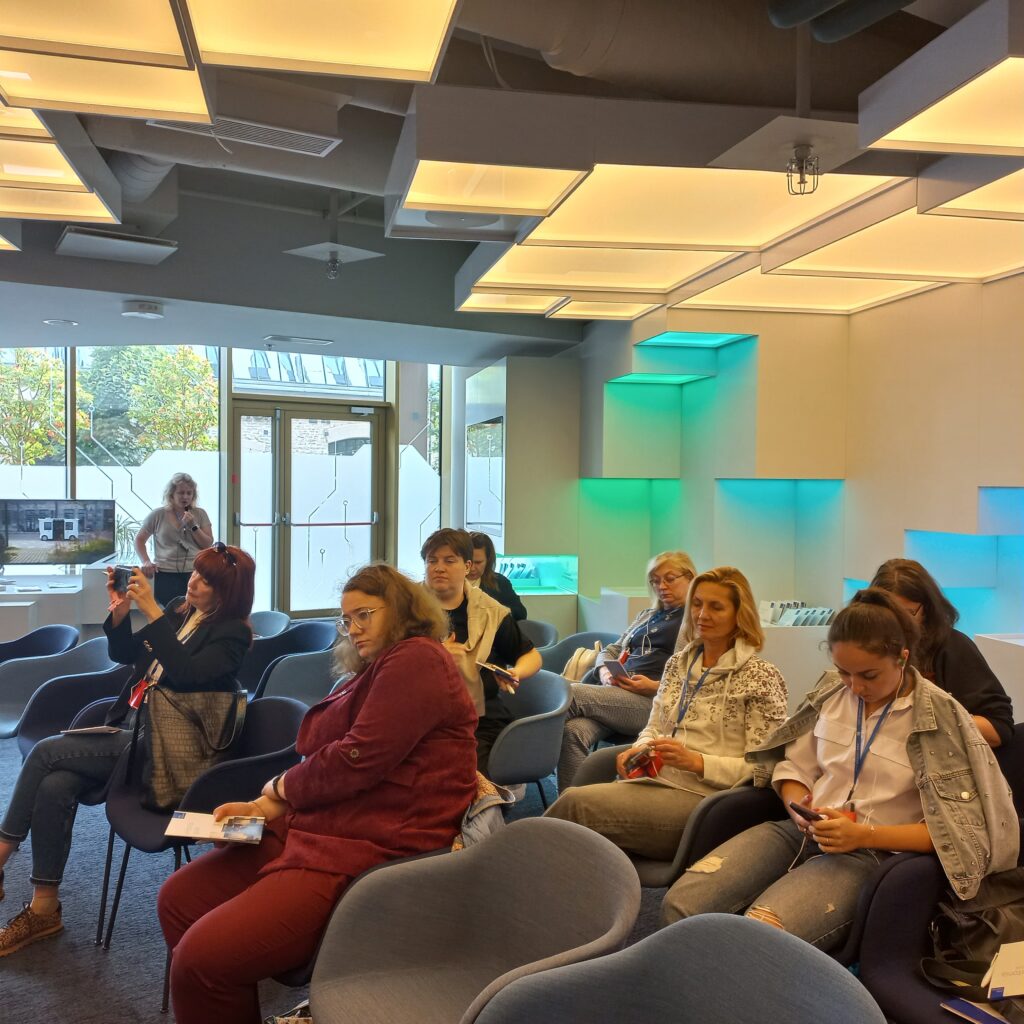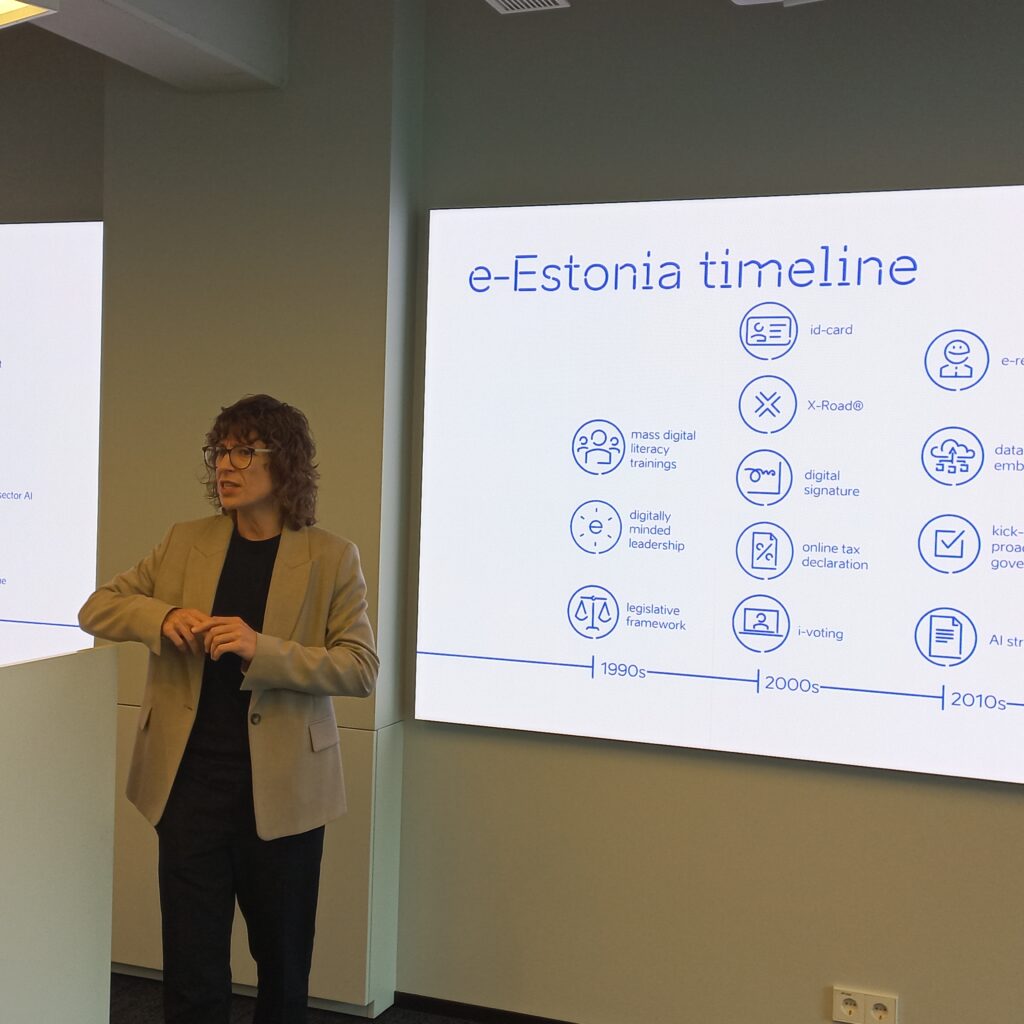On August 23–29, 2025, a group of Ukrainian journalists and communication specialists visited Estonia as part of the training visit within the project “Strategic Communication and Societal Resilience to Disinformation.”
The participants came from various regions of Ukraine, including frontline and border areas – Dnipro, Luhansk, Donetsk, Poltava, Sumy, Zhytomyr and Kherson – as well as from Kyiv.
The purpose of the visit was to learn about Estonia’s model of crisis communication, its system of protection against disinformation, and approaches to strengthening societal resilience.
A true crisis is the one that nobody expects. All other challenges require preparation, training, and clear contingency plans. That is why Ukrainian journalists and representatives of the communication teams discussed with their Estonian colleagues how to train communities, what issues to address, and, most importantly, how to communicate effectively.
During the visit, the Ukrainian participants explored the work of municipal police and city communication services; government institutions responsible for social media monitoring and countering disinformation; the National Crisis Centre and rescue services; the e-Estonia Briefing Centre — a hub of digital solutions for public services and communication; the Kaitseliit (Estonian Defence League), as well as women’s and youth organizations where every member of society, from children to adults, plays a defined role in national defense. The program also included expert discussions at the PractNet Office on identity, myths, minority policy, and information resilience.
The participants were impressed not only by institutional solutions but also by the people behind them. The dialogue was built on trust, support, and mutual understanding.
“What impressed us most was not only how the system works, but also the people behind these institutions. We spoke the same language – the language of trust, support, and understanding. For us Ukrainians, this experience is especially important: we are learning in the midst of war and experiencing firsthand how vital societal resilience is. Estonia’s example helps us understand how this resilience can be systematically strengthened at the state level.” – Viktoriia Kundirenko, Poltava Regional Council
In the context of Russia’s full-scale war, Ukrainian society is witnessing firsthand how critical information resilience and trust between the state and its citizens are. Estonia’s experience demonstrates how to systematically build a model of crisis communication, prepare for unforeseen situations, and engage citizens in defending and supporting the state.







